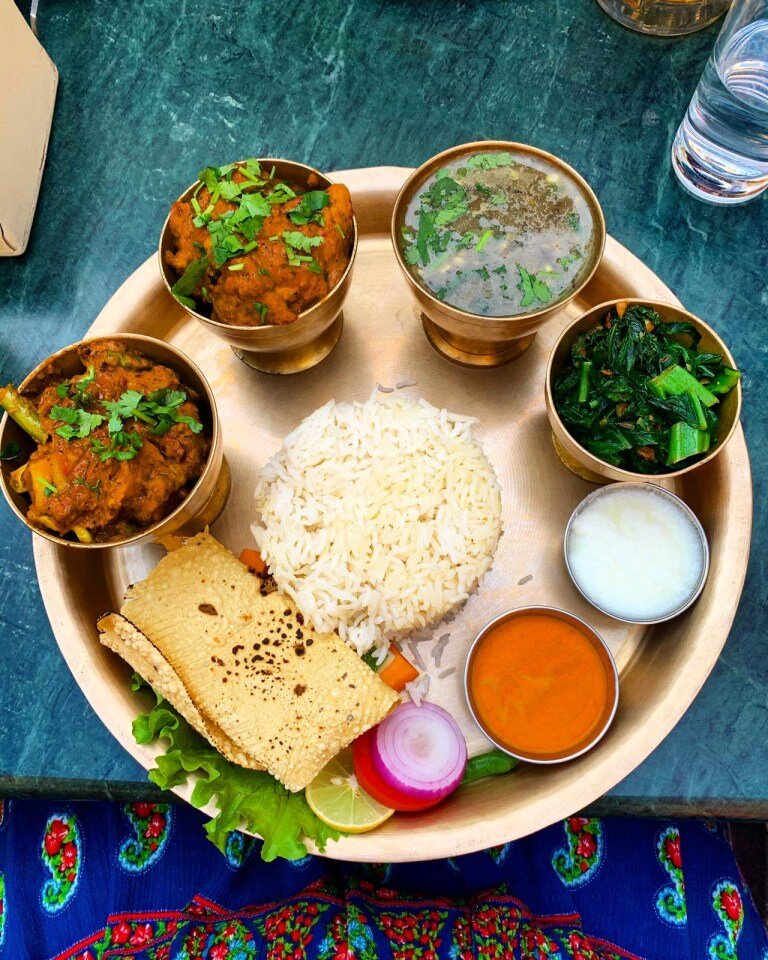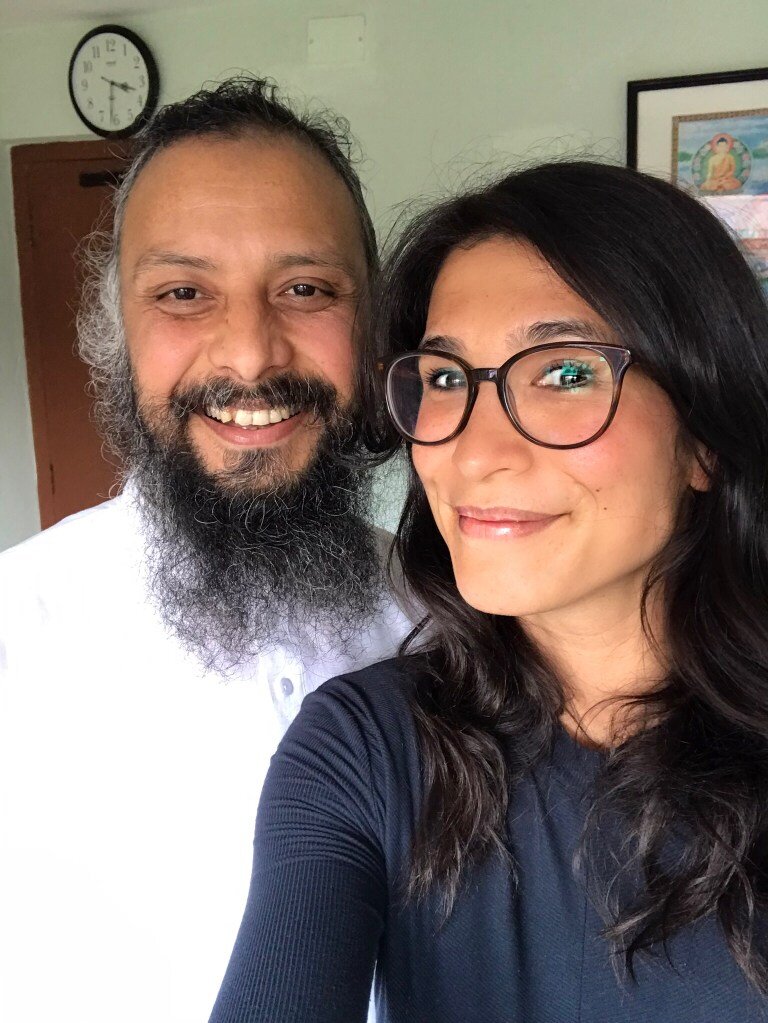What is Ayurveda? – a very, very brief overview
As a Nutritional Therapist, I strongly believe in offering evidence-based nutritional advice, informed heavily by current research, the biochemistry of the human body and using the planet’s natural resources. My approach is evidence-based but not evidence-limited. The science of nutrition is constantly evolving and although my aim is to keep at the forefront of research – we don’t have all the answers yet. So, I also look to the past traditions and wisdom of wellness from where our knowledge of health first stemmed from , such as Ayurveda.
Now there are many arms of Ayurveda – if you drink Pukka Tea or enjoy yoga & meditation, you’re already using some the tools of Ayurvedic principles. But there is a WHOLE lot more to know – this post only gives you the basics but it’s a good place to start…
What is Ayurveda?
Ayurveda simply translates to the ‘knowledge of life‘ (Ayur = life, Veda = science or knowledge). It is rooted in India’s most cherished scriptures known as the Veda’s, which date back to thousands of years before modern medicine – around 1500BC.
This wisdom does not only provide a science of preventative health, but also a philosophy for living. Ayurveda aims to find the root cause of health issues (be that physical, emotional, or karmic) and reestablish balance.
A part of Ayurveda which resonates with me strongly is it’s deep connection and respect for nature and the ‘magic of life‘. We ARE nature – not just observers of it.
“Ayurveda helps us see how our health is connected to everyone and everything around us: our family, our work, our society, and our planet.”
PUKKA HERBS
Looking to nature, the approach is about aligning and flowing with the natural order, rather than struggling or trying to force things to go your way. Being a holistic practice, what you do to support an Ayurvedic way of life will change and adapt; in tune with the seasons, the different stages of your life and even the time of day.
The Doshas
According to Ayurvedic principles, we are made up of three different bodies; astral, physical & causal. We might refer to this in the west as Mind, Body & Soul – all of which need to be balanced to achieve a healthy, fulfilled life. At the very core of Ayurveda is you and your unique set of characteristics within these bodies – these are known as dosha.
The three doshas: Vata, Pitta, and Kapha, are formed from five elements of nature, which are: Air (vayu), Space (akasha), Fire (tejas), Water (jala), and Earth (prithivi). Understanding your dominant Doshas is key to offering insights into which foods, activities and herbs will influence your life in a positive or negative way.
Vata — air + space
Pitta — fire + water
Kapha — water + earth
There’s a few online tests you can do to find our your dominant Doshas – find the links at the bottom of this post.
The Importance of Food in Ayurveda
Quite beautifully in sync with Nutritional therapy; Ayurveda uses food as medicine and prescribes various ways for preparing and even consuming it.
In Ayurveda, food is given the first priority that is necessary for our body. There is a sense that ‘food is memory’ – the components of whole foods contain the wisdom of the planet & nature. As with the body, the food we eat is also made of the 5 elements. In Ayurveda there is a deep rooted understanding that as well as giving us our energy – food makes the basic structural and functional units of our body and selves.
Because of the sheer importance of food, Ayurvedic ways promote eating food by giving our full concentration to it. Food on the go or watching TV is a definite no go. We should find the taste and the flavour of each food we eat, chew it properly and enjoy it.
The food we eat plays a vital role in balancing the doshas of our body. Linked to the 5 elements there are six Ayurvedic tastes (sweet, salty, sour, pungent, bitter, and astringent). Each one is thought to increase or decrease the doshas – so the ones you favour will be personal to your constitution.
There are MANY other aspects of an Ayurvedic lifestyle that you can look deeper in to including; Yoga, Meditation, Movement, Sleep & Detox
My Personal Ayurvedic Experience
Having some Asian roots (my Grandma was from Sikkim near Nepal) I’ve always been curious in Eastern Medicines and ancient wisdoms. Drinking herbal teas and using ginger and turmeric is second nature to me now, but there’s so much more to the Ayurvedic way than that. So, always being one for an adventure into wellness, I took the opportunity to see an Ayurvedic Doctor to find out my Doshas on a recent adventure to Nepal. Whilst in Kathmandu visiting family, I took the chance to go to Moksha Ayurveda & Panchakarma Center
After a warm welcome and some herbal tea, I was greeted by Sanjay – my Ayurvedic Doctor. I had an hours consultation – something I’m used to within my own practice – however what struck me was the nature of the questions asked.
Just like in Nutritional Therapy, Sanjay took a timeline of life events, starting from birth onwards. But rather than just focusing on any past health issues, there was a huge emphasis on relationships (with each member of my family, as well as in my sex life) and also on my personality, my reactions to certain situations and my feelings around events. Sanjay asked deep & insightful questions about me at my core and asked about what is important to me & what brings me joy.
He then asked about my daily routines, some food choices and did a quick physcial examination. Throughout the hour, he would drop little nuggets of wisdom into the conversation – such as how I tend to think with my heart over my head (true) whilst both should be guiding me, or that I tend to have my thoughts in the past or future but rarely present (also true).
“The past rumination makes you sad. The future brings you worry. Neither is happening right now. Be here.”
SANJAY
After the session, and a lovely hug, I was sent my ‘Rasayana for balanced lifestyle Plan’ (diet, herbal medicine, teas and regimes which promote longevity). There are certainly many principles that I already use within my own practise as well as some guidance on what foods to favour and which to limit based on my dominant dosha.
Here’s some other gems (written exactly how they were told to me)
Try to make foods as simple as possible.
Do not keep your stomach empty and do not over eat. Feel your appetite.
Eat foods that are freshly prepared, nutritious, and appetising
Take foods that are lighter & easier to digest, such as vegetables, soups and lentils.
Reduce intake of animal products.
Eat in a settled environment
Never eat when upset
Always sit down to eat and drink.
Sip warm water never cold or ice.
Experience all six tastes at every meal.
Sit quietly for a few minutes after your meal.
Finally I was given guidance on a ‘Daily Routine’ to implement which quite frankly sounds heavenly, but possibly not all that easy to fit into our busy western lifestyles. However I’m a firm believer in aiming high and not worrying about perfection, so I’ve been giving some of this a fair bash
Here’s the routine I was given;
ARISE: 4:00-6:00 A.M. (As Sanjay put it “Early to bed and early to rise”)
So why the early morning? Well according Ayurveda, the time between 4-6 am (2 hrs before sunrise) is called as Brahmamuhurta. During this time the five elements of the universe are in their purest form. This is the boundless source of energy, cognitive, experiential and cosmic memory.
“When you wake up – pray for the wellness of all creatures in this universe. Get up with a positive intuition to start a new day.”
SANJAY
Next:
Gargle with clove water or coconut oil.
Brush your teeth and clean your tongue
Drink one or two glass of warm water to encourage regular elimination
Empty your bowels and bladder
Massage your body with oil (Abhyanga)
Take Bath
Perform Yoga – Asana (poses) & Pranayama (breath)
Meditate
Eat breakfast with full awareness
Take a mid morning walk
LUNCH: 12:00-1P.M.
Eat lunch (the largest meal of the day)
Sit quietly for five minutes after eating
Walk to aid digestion (five to fifteen minutes)
BED TIME: 9:30-10:30 P.M.
Perform light activity at the evening
Go to bed early, but at least three hours after dinner
Do not read, eat or watch TV in bed
“The night is the great source of energy which ends with the rays of sun with the starting of the new day. Every day is the new day which we can start with a new spirit, with a fresh thinking, with new dimension”.
SANJAY
I love learning – about life, health, history – so this journey into understanding more about Ayurveda has been enlightening and empowering. There’s plenty more I could say about great lessons to take into daily life – but being neither an expert in Ayurveda or a 100% follower – I’ll leave that up to those qualified to do so. There is so much we can learn from our ancestors and although I’m bound by my qualifications to make recommendations based on my training & current research – using some of these practises in my own life has been quite frankly, wonderful.
Interested in Finding your Doshas? Head one of these quizzes below






